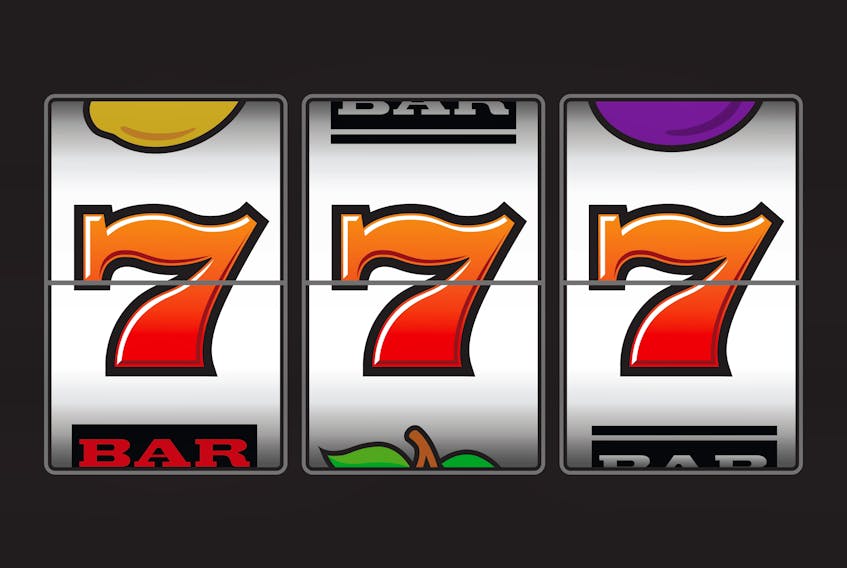That simple yet strikingly profound line has stuck with me for the past eight years. Me and another regular from the Saint Mary's gaming club (located just outside of Fredericton) had just finished winning a bunch of money at the poker table and were off to spend some of our winnings at The Diplomat, one of Freddy's few 24-hour restaurants. On the way there, we got into a discussion about gambling, and why all of us regulars kept coming back night after night.
We all gamble for a reason. For him, it was because of a failing marriage. For me, it was to keep a series of intense emotions at bay — grief, anger, rage, sadness, and others I can't even describe.
Just a few months earlier, one of my best friends tragically and suddenly died. It was a shock to the system that no university student should ever have to go through.
Like most tragedies, Andrew's death caused a long domino effect that tore down many aspects of my once-content life. I no longer wanted to be in crowds of people. I skipped invites to parties and hangouts. I could also become very angry at a moment’s notice. It was all the exact opposite of the amazing student life I led for the first three years.
I discovered that gambling was the ultimate distraction to the hell I was going through. During a trip to Montreal, I decided to go to the local casino to play some poker. For several years I would play poker semi-frequently either in person or online for reasonable amounts of money. It was a hobby like any other.
But when I went to the casino that night in January of 2011, I was in need of a coping mechanism, and my brain found the poker table soothing. At that table I wasn't focused on grief or rage. I was only focused on winning as much money as possible.
When I arrived back in Fredericton, I discovered the poker games at Saint Mary's and went nearly every night of the week. I was winning a lot at poker in the beginning. The top drawer of my dresser was filled with $20's and $100's that I'd come home with.
But eventually poker wasn't good enough as a constant distraction for me. In poker, you have to patient and make sure you get the right cards to play with. I had lost my patience and, in turn, quickly began losing money. That's when I turned my attention to something that would destroy my finances and nearly lead me to suicide — video lottery terminals (VLT).
By the time I moved back to Labrador in late 2012 and began my journalism career, VLTs had a grip on me that poker could never match. There was something about the bright flashing lights and the way you felt when the first two reels landed in your favour, almost convincing you a huge win was within reach.
Patience wasn't needed. Each spin was a new hand that could be pocket aces. And when you went on a winning streak you felt like you could never lose. So why stop after you won $500, when you were convinced it would eventually become $1,000?
It wasn't long before every cent of disposable income was going to the VLTs located in Happy Valley-Goose Bay's barrooms. Nearly every lunch hour, I could be found at the machines, just another one of the sad people ripping up their paychecks.
That's another big difference between poker and VLTs — the atmosphere. At a poker table, whether people are winning or losing, there is usually a lot of chatter and laughter going on around the table. It's no surprise so many people play poker on the weekends with friends for small amounts, just as an excuse to hang out and maybe have a couple beers.
In the VLT rooms, people almost seem hypnotized by the machines. Most players I met don't like to talk, especially when they're losing (which is more often than not). And striking up a conversation with a VLT player who is down hundreds of dollars is rarely pleasing.
I got so hooked on VLTs that I ended up spending my free evenings on online casinos, playing their versions of video slots. They were almost as addicting as the actual machines.
On the internet casinos you can wage way more money on a single spin than the VLTs. On the traditional VLT in Newfoundland and Labrador you can go as high as $2.50 per spin. On the internet, I once tried a single $125 spin (no that's not a typo). But in general, I would spend anywhere from $3 to $7.50 a spin while playing online.
Obviously, when you bet more money you're hoping to win more money. And there are times online when I was up as high as $5,000. Not once did I cash that money out.
It may sound insane not to take $5,000 and run away with it, but gambling addicts are not in it for the money. When us gamblers are winning, our brain releases natural chemicals that are stimulating and pleasurable. It's chasing this natural high that becomes addicting. The more you win, the more you want those chemicals to be released. When you're up $5,000, the high is so incredible and your brain is convinced the money will just keep rolling in like a wave.
But like all waves, when it crashes, it crashes hard.
Now, it may sound like online casinos are way more dangerous than VLTs, based on the higher gambling limits. I would argue the exact opposite. Every online casino I ever used had a lot of safeguards in place for us addicts. You can request to have a strict monthly deposit limit, or you can go down the ultimate route of self-exclusion.
When you ask for self-exclusion; that's it, you are done with that online casino. They are not allowed to let you back in, and you are not allowed to sneak back in under a new username (trust me I tried countless times).
I am rarely ever tempted to try an online casino any more for one simple reason: I am literally self-excluded from every imaginable online gaming site. If you google “online casino” you will get dozens of results for individual gaming sites. Each and every one you see, Derek Montague is persona non grata for that site.
To this day, however, the allure of VLTs is so dangerous that my friends call a pub or a pool hall ahead of time to make sure they don't have these machines before we go and hang out at these locations.
Every time I walk by the outside of a bar, especially a bar where I used to gamble, I get an impulse to go inside and stick a $20 in the machine. That's right, I don't even need to see the actual machines anymore to get that impulse; an impulse I can only compare to a hunger, to throw away my money.
So what safeguards exist for me, an extremely problematic gambler, in Newfoundland and Labrador, when it comes to VLTs?
Well, the machines do remind you every so often that you've been playing a long time. And a 1-800 number appears on the screens, telling you to call if you consider yourself a problem gambler. Other than that, nothing else comes to mind.
The VLTs, as long as I've played them, do not give you the option of a deposit limit, let alone allowing you to self-exclude. And no bartender has ever approached me, or anyone next to me, asking if they need to be cut off.
Problem gambling isn't seen as a problem at all in these places. So why doesn't the Atlantic Lottery Corporation or the N.L. government have more safeguards in place? Who the hell knows. It was never explained to me as a journalist or a gambler. But one can easily make an educated guess.
What has pissed me off over the years is the way everyone knows VLTs are a problem, but simply ignore it. No one ever defends the machines for being good for the province, but few people, especially those who wield power, ever make a commitment for change.
So many people have become indifferent to the human misery caused by these machines that complacency has taken hold.
In fact no one would even be talking about VLT's in early 2019 if it wasn't for the recent news of a class action lawsuit in the province. According to a Dec. 17 article from the Canadian Press, the courts have paved the way for 30,000 people from this province to sue the ALC over VLT addiction.
The article states: “...the plaintiffs allege VLTs more closely resemble a gambling card game known as three-card monte, which at first glance appears to be a straightforward test of tracking one of three cards as they are moved about.
The lawsuit argues the sleight-of-hand tricks used in this con game are not unlike the manipulative electronic programming VLTs use to create ‘cognitive distortions’ about the perception of winning.”
From personal experience, I say this is a fair description of how VLTs work.
I am not a lawyer, so I can't say what kind of chance this lawsuit has in court, but I hope the threat of VLTs now causing the ALC to, ironically, lose money will finally cause some sort of action, or at least serious conversation.
Because human misery alone hasn't been enough for anyone to start talking.









